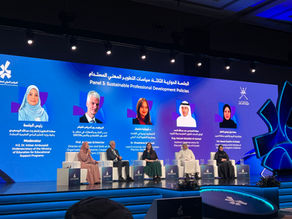EMPOWERING A TRANSFORMATIVE FUTURE: CELEBRATING WORLD YOUTH SKILLS DAY
- SDSN Youth

- Jul 15, 2023
- 2 min read
Written by Abigail Chifusa, Global Schools Project Officer

July 15th marks a significant day on the global calendar as the United Nations officially recognizes it as World Youth Skills Day. This special occasion provides an invaluable opportunity to shed light on the importance of skill development amongst young people and the role it plays in shaping a transformative future. In particular, the theme for World Youth Skills Day 2023, "Skilling teachers, trainers, and youth for a transformative future," underscores the critical need to empower educators and youth alike through the Global Schools Program (GSP). Teachers and trainers are the architects of knowledge who shape the minds of future generations. By focusing on upskilling and professional development, GSP enables educators to become effective facilitators of skills development.
The Global Schools Program , spearheaded by the UN Sustainable Development Solutions Network (UN SDSN), serves as an international initiative dedicated to empowering young people through transformative education. By providing resources to integrate the Sustainable Development Goals (SDGs) into the curriculum, teacher training, and operations, the program fosters the development of critical thinking, problem-solving, and innovation skills among students, preparing them to become agents of positive change.
Empowering young people with a diverse set of skills is essential for their personal growth and future employability. Youth skills encompass both technical expertise and transferable skills such as communication, collaboration, and problem-solving. Encouraging young individuals to engage in skill-building activities through internships, apprenticeships, vocational training, and entrepreneurship programs can enhance their employability prospects and enable them to contribute meaningfully to society.
Advocating for youth skills is a responsibility that falls upon various stakeholders, including governments, educational institutions, businesses, and civil society. Governments must allocate adequate resources to educational initiatives, ensure equitable access to quality education, and promote skill development programs. Businesses can collaborate with educational institutions to offer internships, mentorship programs, and skill-building opportunities. Civil society organizations can create platforms for youth engagement, facilitate access to training programs, and advocate for policies that prioritize skill development. It is of great importance to empower youth through lifelong learning and upskilling, fostering a generation that connects their skill building to the sustainable development goals through initiatives like the SDG Academy or UN SDG: Learn As this day is being celebrated, let us collectively advocate for skilling teachers, trainers, and youth, enabling them to become catalysts for positive change and contributors to a transformative future.
The UN Day for Youth Skills serves as a powerful reminder that youth are not just the leaders of tomorrow but also key stakeholders in the present. By focusing on skills development, they are equipped with the necessary tools to tackle global challenges, pursue economic opportunities, and contribute to sustainable development. This day urges us to recognize and invest in teacher training programs that equip educatorsecuators with the pedagogical tools and resources needed to foster creativity, innovation, and adaptability among their students.

















Very nicely written. Skilling teachers is absolutely essential because they are the ones who work with children directly on a daily basis and on a long-term basis watching children growing in front of them year after year. On that front, I am very happy to have gone through the Global Schools Teacher program. It has not only brought the SDG close to me but also has given me lots of tools and techniques through which I can implement them in my school. I will definitely recommend this to all the teachers.